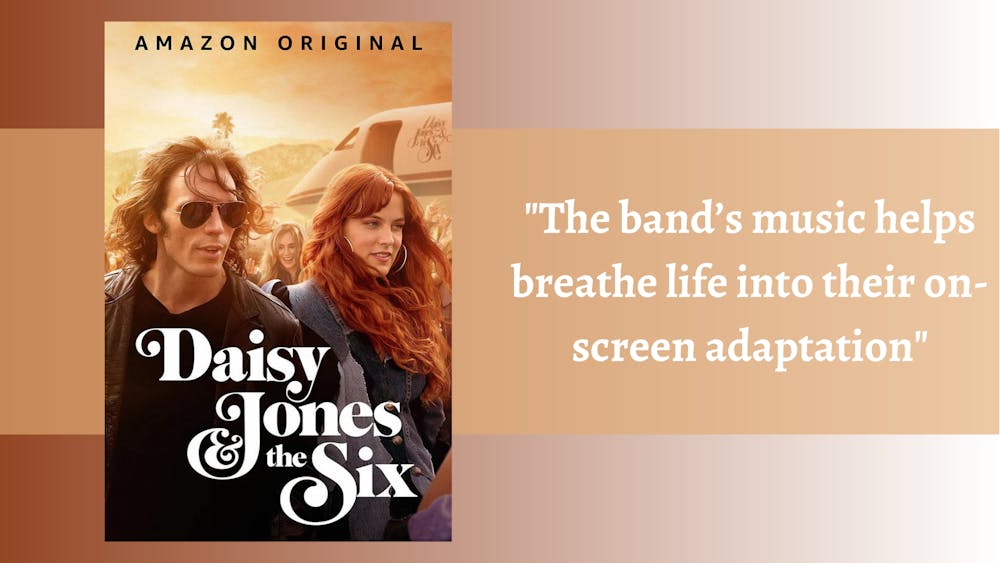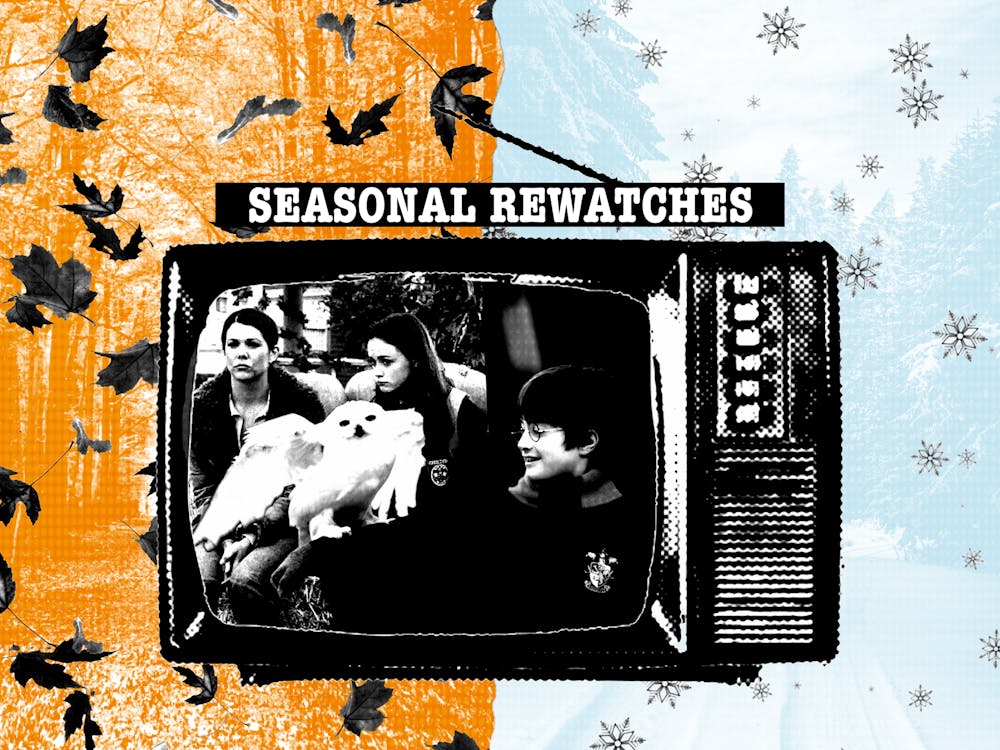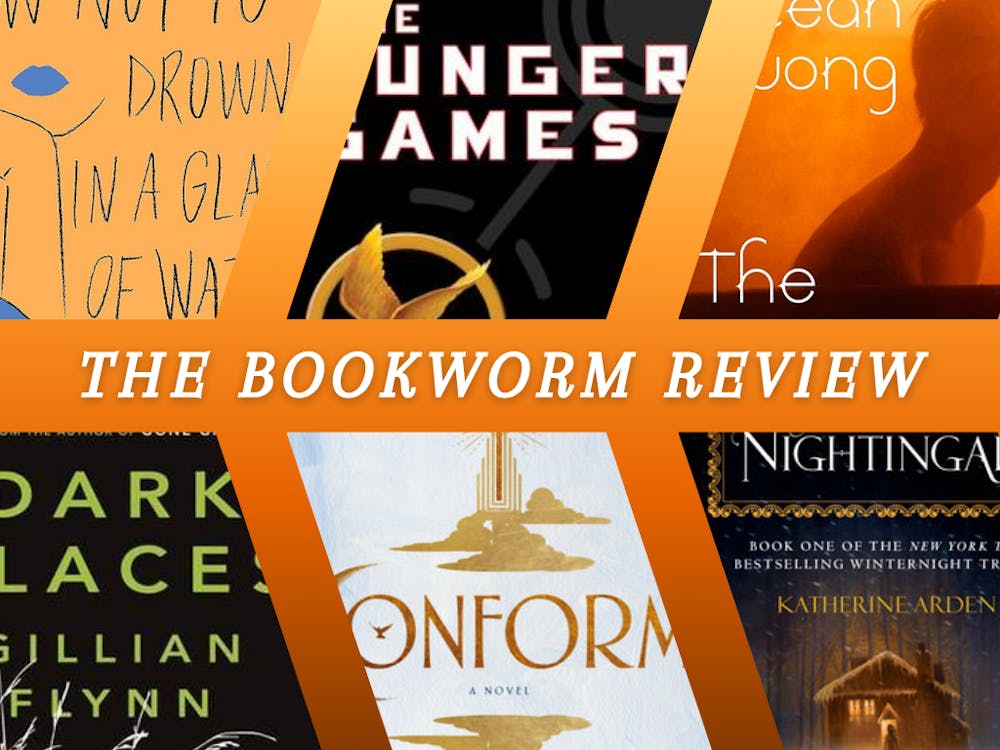“You regret me, and I'll regret you,” Daisy Jones and Billy Dunne sing on a stage in front of tens of thousands of people. There’s a glare in Jones’s eye that suggests some truth to the deep-cutting lyrics she screams into the microphone. That glare is directed at Dunne.
Millions of readers — myself included — could only imagine the anger in Jones’s voice since the publication of Taylor Jenkins Reid’s novel “Daisy Jones & the Six” in 2019.
Now, Daisy Jones and the Six are taking the world by storm in a ten-episode miniseries on Amazon Prime Video, executive produced by Reese Witherspoon.
With a star-studded cast including Sam Claflin, Riley Keogh and Suki Waterhouse, the fictional 1970s rock group whose history mirrors that of Fleetwood Mac has the charisma it needs to find its place at the top of both current headlines and music charts. Their album “Aurora” became the first album by a fictional band to hit #1 on the iTunes charts.
The band’s music helps breathe life into their on-screen adaptation, guided by musical consultants like Phoebe Bridgers. Their on-stage performances might lack dialogue, but they allow viewers to go from fans of “Daisy Jones & the Six” as a book to fans of the band.
Keogh, who played Jones, might have had a genetic leg up (her grandfather was Elvis Presley), but she and Claflin had never played musical instruments before the show began. In order to pull off the musical aspect of the story, the cast had to go through an 18-month “band camp.”
The commitment to music pays off. “Aurora” covers a lot of ground emotionally and sonically, and it’s hard to believe that Keogh and Claflin had never sung before when the blend of their powerful voices sounds that good.
While the other members of the band might not be credited for playing their instruments in the studio version, all of the performances in the show were completely live and recorded on set.
The show takes a “mockumentary” approach that lets a viewer truly feel the complexity of the events that unfold. Watching made me feel as though I was a fly on the wall during recording sessions that were going to make history, as well as the tumultuous fights, where each member tells a different story to the camera.
Between Daisy and Billy’s disastrous, adulterous relationship and struggles with addiction, Karen and Graham’s inability to communicate the intensity of their feelings, Eddie’s desire to overtake Billy as the “star” of the group, and an Irish prince, the show has its hands full. It covers a lot of ground, bouncing around between different interviews and often leaving story threads off until the next episode, where they’re weaved into a larger picture.
It’s easy to get lost in the chaos of “Daisy Jones” if you aren’t familiar with the novel, but for fans of the original, the television series keeps the intense pace of the source material.
With all of that being said, there are some continuity problems between the show and the book. This is a given with adaptations, but some of the changes seemed senseless.
Enjoy what you're reading?
Signup for our newsletter
For one, an entire character, Pete, was removed from the band for seemingly no reason. This wouldn’t be much of a problem in other stories, because sometimes material needs to be cut down to fit a television format, but here it leaves a band called The Six with five members.
Camilla, Billy’s wife, has a change of last name from Martinez to Alvarez for the show. Also, an early member of The Six leaves the band to become a dentist — depoliticizing the source material, where he is drafted into and dies in the Vietnam War.
The nature of Billy and Daisy’s relationship feels considerably different too. In the text, the core of their relationship is simply the way that they write music together. While they bicker, argue and fall further into addiction, just like in the show, Jenkins Reid implies that their relationship is never physical in the novel.
While changing the number of members in the band and the last name of a character might not drastically alter the overall themes of the work, these criticisms build toward a larger alteration — “Daisy Jones & the Six” as a piece of literature utilizes solely unreliable narrators, aided by a twist at the end about who they’re speaking to, and never truly shows you what happens.
It’s up to you as a reader to decide who you believe or don’t believe. That room for interpretation is what makes the novel truly special, and just isn’t something that the medium of television can achieve the same way, though “Daisy Jones” certainly tries.
There’s a lot to love about “Daisy Jones and the Six.” The music is amazing, the cast is wonderful, the clothes are gorgeous, and you can really feel transported back in time by all of the care that went into creating the show (if you don’t pay too much attention to what year some of the cars are from, unlike my dad).
To (quite literally) make a long story short, I’ll feed into the age-old cliché: the book was better.
Rating: 8/10




